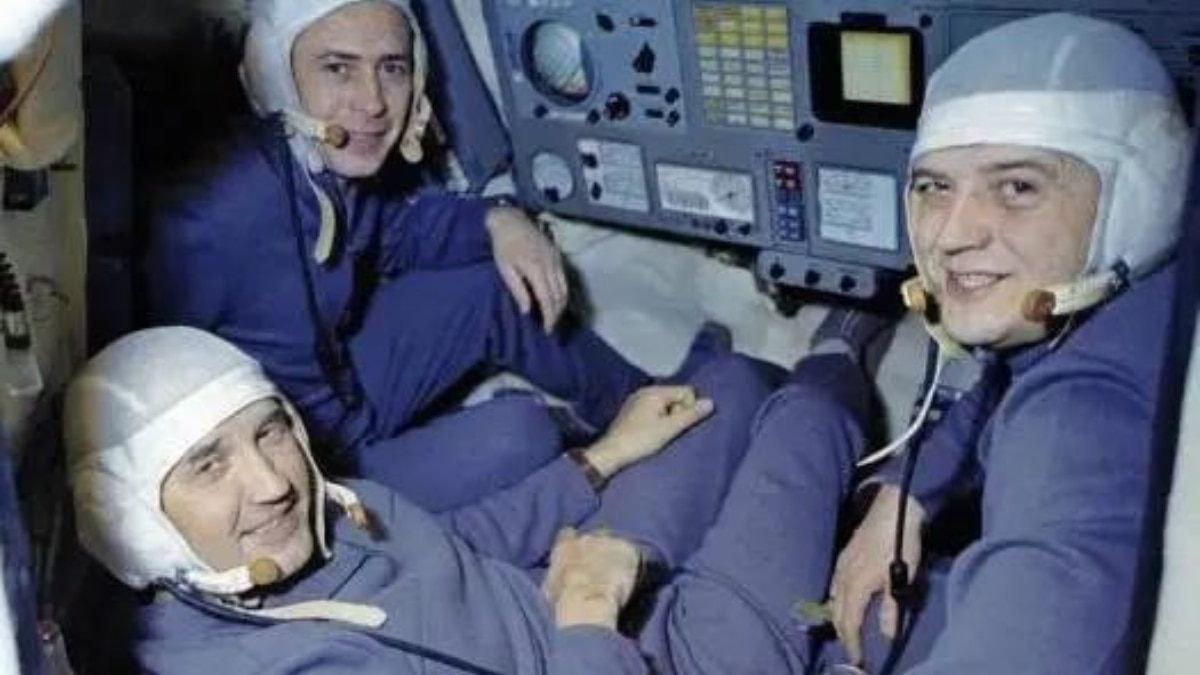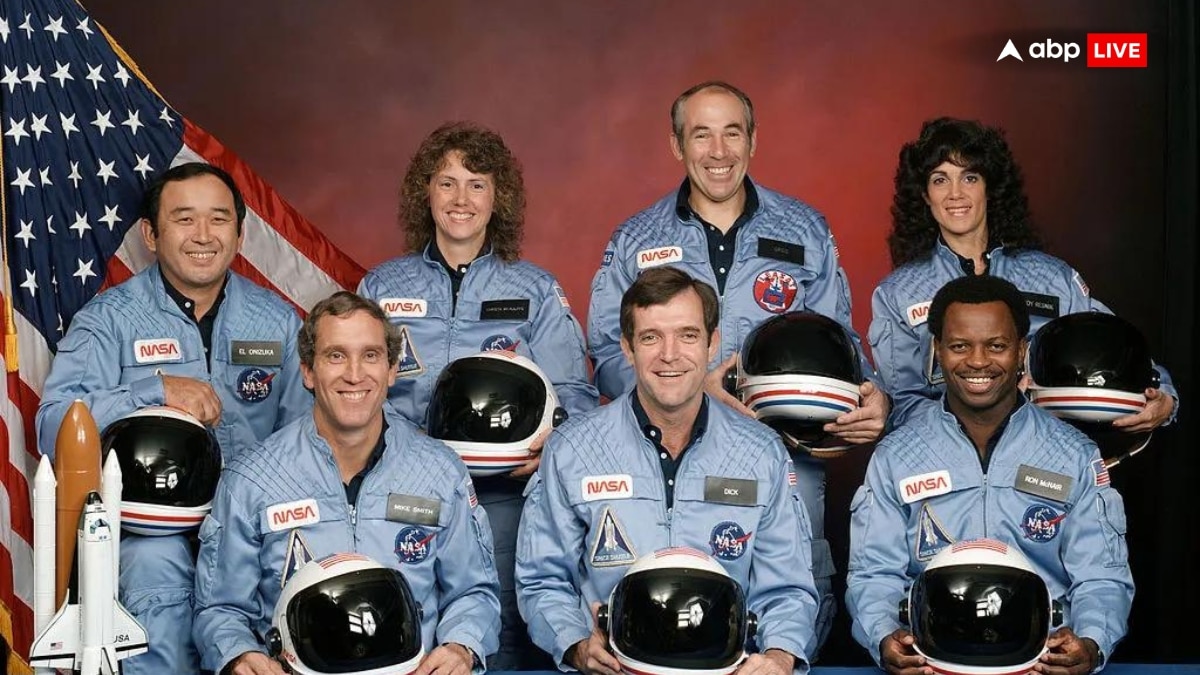Indian-Origin Kalpana Chawla To First Civilian Christa McAuliffe: 18 Astronauts Who Did Not Return Alive from Space
Death In Space: Space exploration has claimed the lives of 18 astronauts, including Kalpana Chawla, the first Indian-origin woman in space. Here is a look at the notable incidents.

Death In Space: The history of space exploration dates back a few decades, and countless astronauts have since 1961 embarked on missions that pushed the boundaries of human knowledge and ambition. While many returned as heroes, some paid the ultimate price in their pursuit of science. Venturing beyond Earth's atmosphere comes with risks, and the stories of astronauts who did not return alive from space serve as stark reminders of the risks involved.
There have been at least 18 astronauts who who flew to space to never come back.
Kalpana Chawla was one of them. Karnal-born Kalpana was the first woman of Indian origin to go to space, and her tragic death in the Columbia Space Shuttle disaster over two decades ago was a significant loss for India, both emotionally and symbolically.
After a faulty spacecraft left another woman astronaut with Indian roots, Sunita Williams, stranded in space, there have been fears about their safety. Though NASA has assured that Williams and Butch Wilmore, the commander of the Boeing Starliner spacecraft that took them to ISS on June 6, will be brought back safe early next year, the world is reminded of the past fatalities in space.
Here are some of the most significant incidents involving astronauts who never returned alive from space.
Soyuz 1 Disaster (1967): First Human Casualty In Space
On April 24, 1967, Russian cosmonaut Vladimir Komarov was launched aboard Soyuz 1. During re-entry into the Earth, the parachute system failed, causing the capsule to crash at high speed. As "the main parachute did not deploy on schedule...the high descent velocity resulted the destruction of the ship", NASA explained. Komarov became the first astronaut to die during a space mission.
Soyuz 11 Accident (1971): 3 Died Of Asphyxiation Before Landing
The Soyuz 11 mission is perhaps one of the most tragic spaceflights in history. On June 30, 1971, cosmonauts Georgi Dobrovolski, Viktor Patsayev, and Vladislav Volkov were returning from the world’s first space station, Salyut 1. As the spacecraft re-entered Earth's atmosphere, a cabin ventilation valve malfunctioned, leading to depressurisation. All three cosmonauts died of asphyxiation before landing. The incident remains the only one in which humans died while in space, rather than during launch or re-entry.

Challenger Disaster Of 1986: 7 Astronauts Died In 73 Seconds Of Liftoff
On January 28, 1986, the Space Shuttle Challenger disintegrated just 73 seconds after liftoff, killing all seven crew members, including teacher Christa McAuliffe, who was set to be the first civilian in space. The explosion was caused by the likely failure of an O-ring in one of the solid rocket boosters, leading to a catastrophic chain reaction "aggravated by extreme cold weather in Florida before the launch". The disaster shocked the world and led to a thorough re-evaluation of NASA's procedures and safety protocols. The crew included Commander Francis R. Scobee, Pilot Michael J. Smith, Mission Specialists Ronald McNair, Ellison Onizuka and Judith Resnik; and Payload Specialists Gregory Jarvis and Christa McAuliffe.

2003 Columbia Tragedy That Killed Kalpana Chawla
The Space Shuttle Columbia’s mission was intended to be routine, but it ended in disaster. On February 1, 2003, the shuttle disintegrated during re-entry, killing all seven astronauts aboard. According to NASA, the orbiter suffered a "catastrophic failure due to a breach that occurred during launch when falling foam from the External Tank struck the Reinforced Carbon Carbon panels on the underside of the left wing". The wing damage compromised the shuttle's thermal protection system, leading to the tragic breakup upon re-entry. The crew included Commander Rick D. Husband; Pilot William C. McCool; Payload Commander Michael P. Anderson; Payload Specialist Ilan Ramon, the first Israeli astronaut; and Mission Specialists Kalpana Chawla, David M. Brown, and Laurel B. Clark.
Special Mention: Apollo 1 Crew & Michael J. Adams
The Apollo 1 mission never left the ground, but it remains one of NASA’s most harrowing tragedies. On January 27, 1967, astronauts Gus Grissom, Ed White, and Roger B. Chaffee were conducting a pre-flight test when a cabin fire broke out. The blaze, fuelled by the highly pressurised oxygen environment, spread rapidly, and the crew was unable to escape. All three astronauts lost their lives, marking the first fatal incident in the US space program.
Michael J. Adams was an American astronaut and Air Force test pilot who tragically lost his life on November 15, 1967, during the X-15 Flight 3-65-97. Adams was flying a North American X-15, an experimental aircraft designed to test the limits of high-speed, high-altitude flight. During his seventh flight, the aircraft suffered a control failure at an altitude of 50 miles, leading to an uncontrollable spin. Despite his efforts to regain control, the aircraft broke apart during re-entry, killing Adams. He became the first American astronaut to die during a spaceflight mission.
Related Video
Southern Rising Summit 2024: How Important is Self-Awareness? Insights from Anu Aacharya | ABP LIVE







































